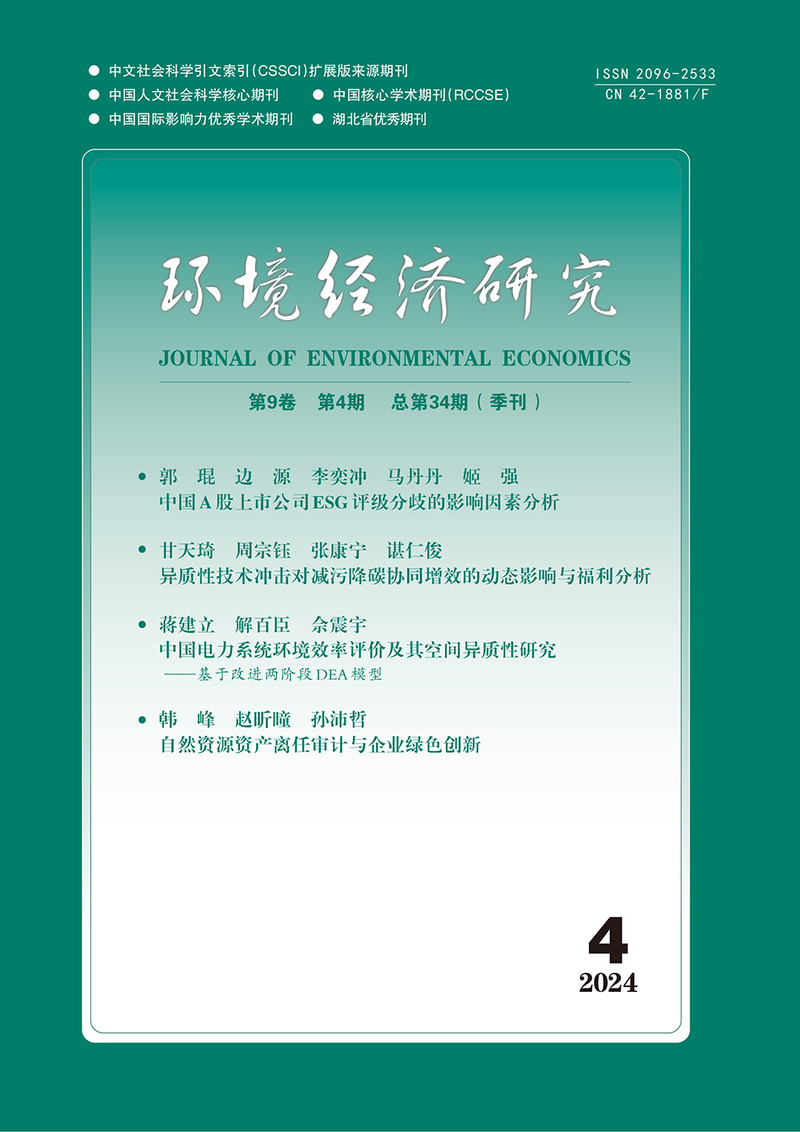摘要:在全球气候变化加剧和“双碳”目标背景下,探索有效的企业碳减排路径已成为学术界和实务界共同关注的重要议题。本文基于我国2013—2022年沪深股市A股上市公司数据,采用双重差分模型,对绿色供应链试点政策的影响效应及作用机制进行了实证检验。研究结果表明:绿色供应链试点政策显著提升了试点企业的碳绩效水平,且在通过一系列稳健性检验后仍然成立;绿色供应链试点能够通过绿色创新、效率提升、环境信息披露三个渠道提升企业碳绩效,并且在环境规制的调节作用下,绿色供应链试点政策的碳绩效提升作用依然显著为正;绿色供应链试点对成熟期、技术密集型企业碳绩效提升效果更显著,但一定程度上会增加成长期、劳动密集型企业的碳排放。上述研究结论为深入发挥绿色供应链在提升碳绩效方面的积极作用提供了有力支撑,并为国家绿色发展贡献了相关政策建议。
关键词:绿色供应链;企业碳绩效;绿色创新;效率提升;环境信息披露
How Does a Green Supply Chain Improve Corporate Carbon Performance?
Wang Hua, Peng Yu
Abstract: Against the background of intensifying global climate change and the Dual Carbon goals (carbon peak and carbon neutrality), identifying effective pathways for corporate carbon emission reduction has become a critical issue of common concern for both academia and industry. This study investigates the impact of China's Green Supply Chain (GSC) pilot on A-share listed companies in the Shanghai and Shenzhen stock markets from 2013 to 2022. By employing a DID model, the study evaluates the effectiveness of the GSC pilot in improving the carbon performance of pilot enterprises and identifies the underlying mechanisms driving these improvements. The results show that the GSC pilot effectively improved the carbon performance of the pilot enterprises and passed a series of robustness tests. Mechanism analysis finds that green innovation, efficiency improvement, and environmental information disclosure can reduce the carbon emissions of enterprises. The moderating effect discovers that environmental regulation effectively strengthened the role of the GSC pilot in improving carbon performance. In addition, this paper finds that the pilot had a better carbon reduction effect on mature and technology-intensive enterprises. The above research conclusions provide strong support for the government to build a GSC and promote low-carbon development.
Keywords: Green Supply Chain; Corporate Carbon Performance; Green Innovation; Efficiency Improvement; Environmental Information Disclosure
